#jacques roux
Explore tagged Tumblr posts
Text

catholics in 1793 be like
#frev#french revolution#maximilien robespierre#jeanbon saint andrè#jean baptiste joseph gobel#gobel#charles maurice de talleyrand#jacques roux#abbe sieyés#emmanuel joseph sieyés#jean paul marat#shitpost#frev art#art tag#history#history art
750 notes
·
View notes
Text


forgot to post those here
(Thinking about doing a little comic about a silly little love story between Jacques Roux and Widow Hebert let me see if I can find enough material or just invent enough bull shit
#Marat#jean paul marat#saint just#Jacques Roux#character design#because no portrait for poor farmer priest boy#Art#my art#doodle#frev#french revolution
245 notes
·
View notes
Text
Survey: Who is your favorite feminist revolutionary of the frev (or at least someone who contributed to women's rights)?
In this survey, I have deliberately chosen a representative from each different faction.
On the Girondist side: Marquis de Condorcet The revolutionary who campaigned for gender equality, one of the few in his era. He is impossible not to mention in this discussion.

On the Dantonist side: Camille Desmoulins He advocated for the rights of married women to administer their property in 1793. In issue 14 of his journal Révolutions de France et de Brabant, he speaks highly of Théroigne de Méricourt and writes the following passage: "At the request of Mademoiselle Théroigne to be admitted to the district with a vote of consent, the assembly followed the president’s conclusions, thanking this excellent citizen for her motion; a canon from the Council of Mâcon having formally recognized that women have a soul and reason like men, they cannot be forbidden from making as good use of them as the speaker did; he will always make Mademoiselle Théroigne, and all women of her sex, free to propose what they believe to be advantageous to the homeland."

For the Maratist group: Jean-Paul Marat The journalist from L’Ami du Peuple often defended women who were victims of domestic violence, encouraging them to flee their homes and denounce those who abused them. Here is an excerpt from his writings found in the excellent book Madame Marat: A Heroic Life in the Turmoil of the French Revolution by Stefania di Pasquale: "Women are more inclined to tenderness than men. During their childhood, children are expected to oppose themselves to shame, but as soon as they come to the age in which women start listening to us, we hurry to conquer them and to excite their imagination; we focus all of our thoughts to unleash their senses. Hasn’t the time come to create a sweet bond with them? Men have always chosen while women have always accepted! How many foolish parents sacrifice the happiness of their daughters? Forced to yield the object of their heart forever, they become unable to love again, seeing only misfortune in their future." He also defended prostitutes.

For the Cretois group: Charles-Gilbert Romme The revolutionary mathematician, founder of the revolutionary calendar, also worked for certain women's rights. He founded a mixed club with Théroigne de Méricourt, and in a report on public education dated December 20, 1792, he advocated for girls to have access to republican schools. He made the following remark: "They should not be strangers to social virtues, since, in addition to needing them for themselves, they can develop or strengthen them in the hearts of men. If, in the natural and social order, man is called to execute and act, woman, by an imperious and necessary influence, is called to give the will a stronger and more vehement impulse." Although Romme’s feminism had limits, as seen in his statement: "The secondary schools in question are not for both sexes."

For the Robespierristes group: Georges Couthon One of the best-known members of the CPS in Year II, also spoke in favor of women's rights to share property administration in August 1793, as seen here: source. Additionally, he allowed his wife to give a speech at the Federation Festival in Clermont-Ferrand in 1790, before he gave his own speech, as seen here: source.

For the Enragés group: Jacques Roux Here is an excerpt from Markov Walter on this Enragés leader: "All the revolutionary parties tried to involve women, while, with the exception of the Enragés, they sought to exclude them from any real political activity. Jacques Roux considered them the decisive reserve of the Revolution. 'Victory was indisputable as soon as women joined the sans-culottes.'"

For the Hébertist group: Jean-Nicolas Pache This former Girondin minister of the War , who became an Hébertist and later Mayor of Paris, founded the Société patriotique du Luxembourg club, which, according to Louis Devance, "admitted women from the age of fourteen, with the same formalities as men, but their numbers could not exceed one-fifth of the total members; they were eligible for the same positions in the society, excluding the office roles."

For the Babouvist group: Gracchus Babeuf Babeuf wrote a letter in favor of gender equality to Dubois de Fosseux in 1786, as seen here: source. He supported the full participation of women in political clubs and paid tribute to the women of the French Revolution in his journal article: "Women dedicate their entire days to prevent us from starving," and said of them, "But beware, women, whom we have degraded, without whom, however, and without their courage on the 5th and 6th of October, we might not have had freedom!" He even remarked to one of his colleagues: "The advice you give us regarding the role women can play is sensible and judicious; we will take advantage of it. We know the influence that this fascinating sex can have, who, like us, cannot endure the yoke of tyranny and who are no less courageous when it comes to breaking it." He believed that the homeland had everything to gain from exploiting women’s talents in politics.

For the Thermidorian group: Armand Benoît Joseph Guffroy When he is not making false accusations against Élisabeth Le Bas or showing appalling behavior by kicking his former collaborator Marie-Anne Babeuf out after a violent argument, or writing poorly about Lucile Desmoulins and Marie-Françoise Hébert(euphemism) , one can find some quality in Guffroy's progressive views on women's rights. He wrote: "I had proposed to admit women to the primary assemblies, to deliberate on the choice of municipalities, and I still believe that my two separate ballots and my posted ballots would disturb all the conspiracies. If one is wise, one will come back to it; and I predict that we will never have a public spirit, public morals, if women do not participate in the administration as I have proposed. The National Assembly admitted to swearing the constitution, those who were in the tribune on the 4th of this month. Why would we separate them from the public good? The queen promised to raise her son in the principles of constitutional liberty; all French mothers must publicly swear this civic oath: without that, I repeat, no morals, no morals, no fatherland. Frenchmen, prove that you are men, by giving back to your wives all their dignity; French women, prove that you are worthy of giving birth to a race of free men."
Sources:
Antoine Resche
Louis Devance Le féminisme pendant la révolution française
Walter Markov
Stefania di Pasquale
Jean-Marc Schiappa
Charles-Gilbert Romme, "Rapport sur l’instruction publique, considéré dans son ensemble, suivi d’un projet de décret sur les principales bases du plan général, prononcé devant la Convention le 20 décembre 1792"
Thank you @anotherhumaninthisworld without whom I would not have been able to see the writings of Couthon, Guffroy, and Desmoulins in favor of women's rights.
#frev#french revolution#condorcet#camille desmoulins#jean paul marat#charles gilbert romme#Jacques Roux#Jean-Nicolas Pache#gracchus babeuf#Guffroy#It was difficult to find a somewhat more reasonable figure for the Hébertists in terms of women's rights#as the focus on women's rights was so limited.#Even more for the Thermidorians as we know what happen to the womens who were driven from the assembly with whips#but we can at least give this quality to Guffroy#My goal was at least one representative from each faction#It seemed more fair and “fun” to me.
106 notes
·
View notes
Note
Hi you guys know those enragé guys? Well, they’re at it again. Bread prices went up a bit and they went straight for the pikes. You probably saw them out the window. Citizen Roux seems kinda mad :/. I think your names came up. Pretty publicly unsafe if you ask me.
First of all: this seems like a Committee of General Security problem.
Second of all: because you're sending this here and not to them, I'm assuming they pulled one of their "let Public Safety deal with it" cop-outs. But yes, this does seem publicly unsafe. Especially the pikes. We're genuinely sorry about the bread prices, plenty of folks want to see a maximum imposed but obviously bureaucracy makes that a very slow-going process. If you were sending this a year ago I'd tell you to go to Citizen Marat's, as he gives people free bread (and other stuff) quite frequently but unfortunately... that isn't quite an option anymore.
Sorry, this is kind of turning into a beat-around-the-bush way to say that we don't actually really super know what to do about Citizen Roux. A few people have said he might be a foreign agitator, but it's too soon to tell. If you've got proof, please do send it in, because then he would land in our department and maybe we could give you something more concrete.
17 notes
·
View notes
Note
I was trying to imagine how Jacques Roux would dress himself in his everyday life before (as a priest working/teaching in Saint-Thomas-de-Conac) and during the revolution (walking around in Paris with his dog) and got curious about how worse off priests dress themselves during the revolution. I’ve only seen drawings of married priests in their yellowish robe… Could you maybe recommend some sources on this?
I’m sorry anon, but I’ve had a really hard time finding anything. I’d figured books about just the clergy in general during the revolution would be something there would exist a multitude of given how essential it is for why things turned out the way they did, but the only digitalized ones I found were the following:
Le christianisme et la Révolution française (1927) by Alphonse Aulard
Le christianisme et la Révolution française (1845) by Edgar Quinet
I’ve tried searching for words like ”chasuble” and ”vêtement” in them but couldn’t find anything. I’m sure there must exist more but for the moment I can’t really suggest anything else. Someone more knowledgeable about the subject is more than free to share what they know.
6 notes
·
View notes
Text

#movies#polls#dofus book i: julith#dofus book i julith#dofus#2010s movies#anthony roux#jean jacques denis#ankama#requested#have you seen this movie poll
84 notes
·
View notes
Text
watched marat/sade last saturday !!

jacques louis david you will always be famous
#it was so GOOD omg#the girl playing charlotte was incredible#the guy playing marat was too young but it makes sense bc they’re all graduating drama students :/#bro standing on the tub was jacques roux and he kissed marat’s temple afterwards. such a nice touch#everyone else slayed but charlotte just!!!! omg. I talked to the actress afterwards and she’s such a sweetheart!! so beautiful too :3
30 notes
·
View notes
Text


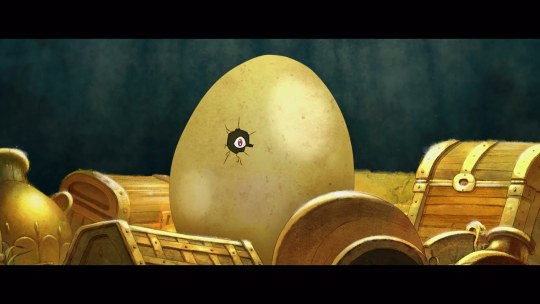
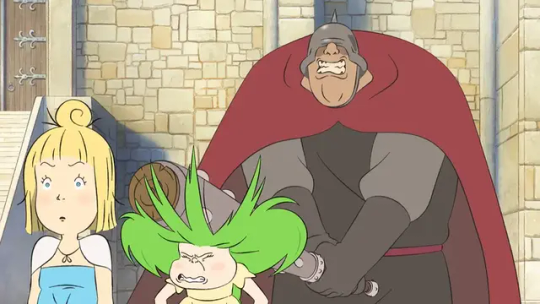
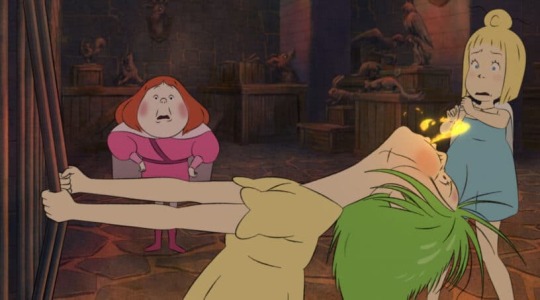
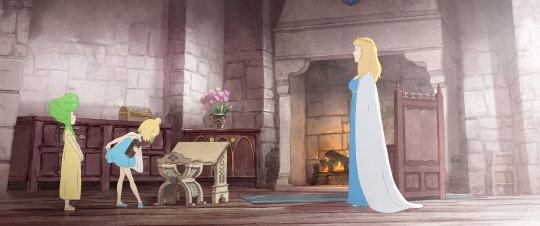

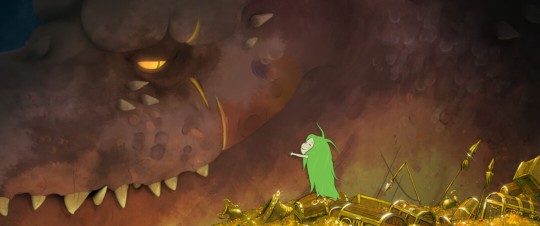
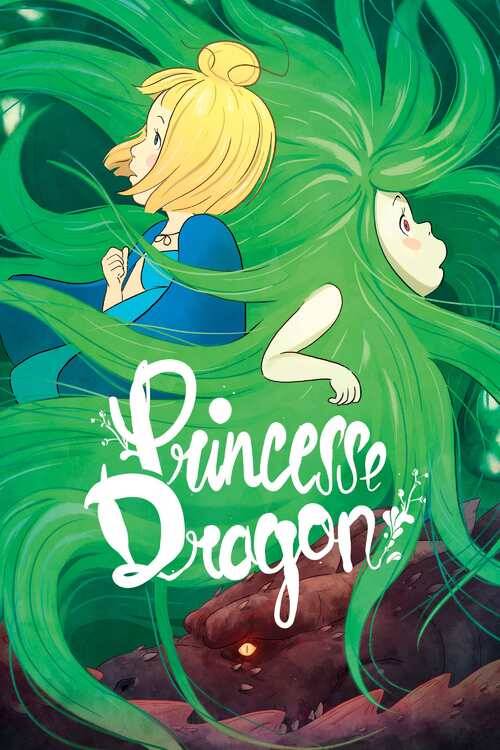
Princesse Dragon (2021)
Film // Película
#Princesse Dragon#Princesa dragón#animación#animation#francia#fr#Anthony Roux#Jean-Jacques Denis#Ankama
9 notes
·
View notes
Text
Louis Vuitton Lovers, Les Indemodables Oranger Sirocco, Arquiste A Grove By The Sea and other reviews - 2024
Fly me to the stars and back -- New releases from Vuitton, Arquiste, Les Indemodables, Gucci and Memo
We travelled all the way from North Africa to Croatia and a couple of distant constellations in a recent episode of Love At First Scent – via a stop-off at the idiosyncratic universe of Pharrell Williams – with reviews of new releases from Louis Vuitton, Arquiste and Les Indemodables, amongst others. Here’s a link to the video, followed by further thoughts on some of the scents: Louis Vuitton…
#2024#A Grove By The Sea#Amandine Marie#Antoine Lie#Arquiste#Cassiopeia Rose#Etoiles Filantes#feminine#Gucci#Jacques Cavallier#Les Indemodables#Louis Vuitton#Love At First Scent#Lovers#masculine#Memo#Oranger Sirocco#perfume review#Pharrell Williams#Rodrigo Flores-Roux#The Heart Of Leo#unisex#video#YouTube
1 note
·
View note
Text

Jacques Panciatici 🇫🇷Olivier Roux🇫🇷#4.Alfa Roméo 75 Turbo.3ème classement final. Rallye du Mont Blanc 🇫🇷1987
72 notes
·
View notes
Text



LAMI (1980) by Patrick Sommer, Daniel Roux and André Guignard, Laboratory of Micro-Informatics of the EPFL of Lausanne (LAMI). "First offered by IEEE in 1978, the [Micromouse] contest was taken over by EUROMICRO and took place in London in September 1980, under the name "Amazing Micromouse Maze Contest". A team from the Laboratory of Micro-Informatics of the EPFL of Lausanne (LAMI) (Patrick Sommer, Daniel Roux and André Guignard) participated in this competition with a dozen other competitors from 4 different countries and won the Originality Award in mechanical construction. The turtle is perfectly operational (despite its relatively slow speed) in a maze built with severe tolerances. Unfortunately, difficulties arise when the maze is less precise." – ELEMICRO 110, March 1981.
"LAMI was a high precision, innovative entry from the Laboratoire de Microinformatique, Swiss Federal Institute of Technology of Lausanne. Rather than turning, it could move its square symetrical body equally well in all four directions, due to a special wheel design by Jacques Virchaux. There is a wheel in the centre of each side, parallel to that side. Each wheel has 16 tiny wheels spaced around its perimeter, each axis tangential to the rim. The large wheels are powered, while the tiny wheels rotate freely. To move forward, the two side wheels propel, while the tiny wheels on the front and back are turned by the floor. To adjust sideways in the passage, the front and back large wheels are turned slightly. The sensors were five LEDs on each corner, set up to find walls and correct position whether moving forward or sideways. It would move rapidly to the centre of a square, and then oscillate a bit to check its readings before dashing to the next square. The team claimed that it could explore a 16 by 16 maze in about fifteen minutes, and then would run the shortest path in thirty seconds. The usual starting sequence was that the "mouse trainer" aligned the mouse, and then counted down from five, so that the timing official could synchronize the clock. When LAMI was about to start, the official thought there was a language problem, and so repeated the instructions. The trainer, standing several feet from the mouse, then counted down, and the mouse started without being touched. The audience liked that! It turned out that a ten second initialization period was a side effect of the software. The problem with precision-built LAMI was that it was built for equally precise mazes. On the first run it moved twenty squares, and then became confused on a taped floor seam. On its second, it touched a side wall and in the trainer's words: "lost synchronization"." – On Micromice and the First European Micromouse Competition, Wayne H. Caplinger, AISB Quarterly issue 39 December 1980.
21 notes
·
View notes
Text



jacques roux and claire lacombe (yuri below)

#frev#french revolution#jacques roux#claire lacombe#history fanart#enragés#frev community#ugh the enragés were so interesting they deserve more attention#art tag#sketches#18th century
107 notes
·
View notes
Text
A little update about Robespierre
Since 1794, reactionary memory has made Robespierre a monster, a bloodthirsty dictator, who wanted to destroy the Old Order, Catholic traditions. Until the Restoration of the monarchy, very few sources are accessible to better understand the character, so demonized is he... It is from the Restoration that writings are rediscovered about him. Under the July Monarchy (1830-1848), the image of Robespierre becomes a model for a democratic and social Republic; an image taken up for the Revolution of 1848. Under the Second Empire, moderate republicans reject the image of Robespierre like that of all the Montagnards; for these republicans, heirs of the Girondins, the French Revolution is limited to 1789, and nothing else!
Since the beginning of the 20th century, in particular thanks to the work of the historian Albert Mathiez, Robespierre appears as an indisputable model of a democratic and social Republic. Jean Jaurès paints a glowing portrait of him in his Socialist History of the French Revolution. Then, in 1920, the communists of the French Communist Party made Robespierre a great revolutionary model, the most important figure of the French Revolution and the First Republic. Moreover, in 1936, the Popular Front, whether it was the communists or the socialists, did not hesitate to glorify the character. In this post, I want to deconstruct in my own way the heroic image of Robespierre.
My post consists to explain why Robespierre did not go far enough in the essential fights to overthrow the old order and traditions, and for an egalitarian, democratic, social and secular republic. I will also take a position for some of my "favorite" revolutionaries, among them Jacques Roux and the "Enragés", Babeuf, Jean-Baptiste Carrier, Antoine-François and Sophie Momoro... I will establish a comparison between the characters cited and Robespierre. If you dislike or are bothered by this post, feel free to leave a critical comment...
At the beginning of 1793, Robespierre was already showing himself to be far too moderate, even indifferent, to the demands of the popular Sans-Culottes movement. At the end of 1792, Jacques Roux (for whom I have a lot of admiration, I will explain why in a future post) had acquired great popularity among the Sans-Culottes, due to his brilliant interventions at the Granvilliers section, and especially thanks to his Speech on the judgment of Louis the Last, on the pursuit of speculators, hoarders and traitors. In this speech, Jacques Roux defends a truly egalitarian program, which is not the case for Robespierre! Jacques Roux notably called for the general taxation and requisition of commodities, the guillotine for hoarders and manufacturers of counterfeit assignats, a ban on exporting grain, etc...
In February 1793, when the radical sans-culotte petitioners, supported by Jacques Roux (and other "ultra-revolutionaries", of course), decided to disrupt the session of the Convention by demanding in particular the general taxation of commodities, Robespierre refused this economic program, considering it absurd and unrealistic.
Robespierre, attached to the right of property and economic liberalism, was against the abolition of private property. In April 1793, he even declared that "equality of property is a chimera". Unlike Babeuf or Jacques Roux, Robespierre opposed the agrarian law, which he considered a counter-revolutionary tool, going as far as the right of property; he was therefore against the fair sharing of property and land! The "ultra-revolutionaries" demanded the guillotine for the hoarders and speculators, which was not the case for Robespierre...
Following the riots of May 31 to June 2, 1793, Robespierre even defended 75 moderates accused of supporting the Girondins. He hoped to limit the scale of the Sans-Culottes movement, whose "radicalization" he feared (he allowed himself to use this word). Fortunately, in June 1793, Jacques Roux presented his brilliant Manifesto of the Enragés, in which he criticized the deputies for being too conciliatory with the hoarders, the speculators, and for maintaining economic liberalism. Robespierre refused to listen to the reproaches made by the most faithful representatives of the sans-culottes, and he expelled Jacques Roux from the Convention ! Robespierre thus launched a fight against the Enragés. The Enragés continued to demand a freeze on prices (the Convention was satisfied with the law of the Maximum), the raising of a revolutionary army to requisition wheat in the countryside, the arrest of all enemies of the people, the purge of the general staff, the dismissal of the nobles. In August 1793, Jacques Roux was arrested, followed by Varlet. This is what happened when one was too radical, much more revolutionary than Robespierre :)
From September 1793, Hébert and especially the brilliant Antoine-François Momoro, now asserted themselves as spokesmen for the sans-culottes. Robespierre was therefore far from controlling everything.
The supporters of reactionary memory who demonize Robespierre (and even some admirers of Robespierre who, in truth, know him very little) equate the character with dechristianization (or worse, with atheism - which makes me laugh so much!). This is not the case at all, quite the contrary, Robespierre is categorically against it !
When he was a member of the Constituent Assembly (from 1789 to 1791), Robespierre spoke in favor of religious freedoms. In 1791, he stated that Catholicism and its practices did not disturb public order, so he was in favor of letting clergy preach, and against touching churches. He found it absurd to eradicate all belief. For Robespierre, the Civil Constitution of the Clergy was enough, no need to go further.
It was the members of the insurrectional Commune of Paris (with Chaumette as public prosecutor and Hébert as substitute), who, from August 1792, decided on the first measures of dechristianization. Chaumette was the main instigator (without forgetting Momoro, whom I adore, let's not lie to ourselves). Robespierre rejected this anticlerical program...
We can say that Joseph Fouché got involved in the work, he took the initiative to destroy churches, break crosses, and burn texts that were sacred only to these Catholic enemies. When he went to Burgundy, Fouché was quite benevolent towards the clergy, since he forced the boarding priests to marry. Collot d'Herbois continued the work in Lyon, by pillaging churches and Catholic icons.
In Nantes, from November 1793 to January 1794, Carrier showed a courage showed a certain "courage"... While he did "the bulk of the work" (attention, provocation!) for the Vendéens, he gets rid of 58 harmful and counter-revolutionary priests, in the "pretty national bathtub" (it's him who says that)... Robespierre condemned this act, which is understandable, since Carrier also drowned innocents. Moreover, even Babeuf disapproved of the drownings in the Loire.
Robespierre lacked courage in the face of counter-revolutionary Catholics. He simply stuck to the Republican calendar and renamed the communes. Another commendable action of dechristianization is of course the celebration of the Cult of Reason, at the initiative of Chaumette and Momoro at the Temple of Reason, where Sophie Founier (wife of Momoro) plays the role of the Goddess-Reason. As a reminder, in Brumaire Year II, Archbishop Gobel agreed to renounce his functions and abjure his religion, wearing the red cap. Shortly after the Festival of Reason, Robespierre gave a speech at the Jacobin Club, attacking atheism by considering it "aristocratic" (which is highly questionable). Then, from March 28, 1794, it was the end of the story for the 19 greatest revolutionaries (from my point of view) called "Hébertists" (the name is in my opinion inappropriate, knowing the different characters well) who had fought to the end against the influence of religion contrary to reason, atheism being proof of rationalism (later, perhaps I will offer you a philosophical post on this subject...).
Robespierre deemed it necessary to introduce a new god, thus preferring virtue and morality, rather than reason which was dear to the ultra-revolutionaries defenders of atheism. On 18 Floréal Year II, Robespierre established the Cult of the Supreme Being. The attributes symbolizing atheism, used during the Cult of Reason, were forbidden. Robespierre burned a statue representing atheism. In his Decree Establishing the Cult of the Supreme Being, he behaves like a priest, preaching the belief in the immortality of the human soul. In some conservative regions, Catholics who are still alive do not hesitate to celebrate mass! I dare say that Robespierre did nothing to prevent this (without casting too many stones at him) !
12 notes
·
View notes
Text
Results of the first Survey: Who is your favorite feminist revolutionary of the French Revolution (or at least someone who contributed to women's rights)? Plus the second and final survey about this.
As seen in the previous survey [https://www.tumblr.com/nesiacha/779667028438138880/survey-who-is-your-favorite-feminist?source=share], due to an error on my part, I forgot to include Couthon as an option. Therefore, I am now putting him up against the winner of the first survey.
First, the results: the winner is Jean-Paul Marat ( Maratist), the Friend of the People, who fought against forced marriages, domestic violence, and defended prostitutes.
In second place, Camille Desmoulins(dantonist), one of the first republicans of 1789, as he advocated for the rights of married women to manage their property in 1793.
In third place, the man who, in a letter, expressed an egalitarian opinion on women and, during the French Revolution, publicly honored them while supporting their full participation in political clubs: Gracchus Babeuf (babouvist).
In fourth place, one of the leaders of the Enragés faction, which was one of the few not to want to exclude women from political activities: Jacques Roux. He even said, "Victory was indisputable as soon as women joined the sans-culottes."
In fifth place: Nicolas de Condorcet ( girondin ), who campaigned for gender equality during this period.
In sixth place: Charles-Gilbert Romme (crêtois), who founded a mixed club with Théroigne de Méricourt, and in a report on public education dated December 20, 1792, advocated for girls to have access to republican schools.
In seventh place, Guffroy (thermidorian) : He advocated for the inclusion of women in primary assemblies, particularly in deliberating on the selection of municipalities, and he emphasized the importance of their active participation in public administration. He wanted women to have the same rights as men in this regard.
The final position goes to Pache ( hébertist), the founder of the Société patriotique du Luxembourg, who admitted women on the same terms as men. Although they received few votes or none at all, they can take solace in the fact that they received votes despite such a large number of options in this survey and managed to secure a place in it.
"Now the face-off: Couthon vs. Marat."

For the Robespierristes group: Georges Couthon One of the best-known members of the CPS in Year II, also spoke in favor of women's rights to share property administration in August 1793, as seen here: source. Additionally, he allowed his wife to give a speech at the Federation Festival in Clermont-Ferrand in 1790, before he gave his own speech, as seen here: source.

For the Maratist group: Jean-Paul Marat The journalist from L’Ami du Peuple often defended women who were victims of domestic violence, encouraging them to flee their homes and denounce those who abused them. Here is an excerpt from his writings found in the excellent book Madame Marat: A Heroic Life in the Turmoil of the French Revolution by Stefania di Pasquale: "Women are more inclined to tenderness than men. During their childhood, children are expected to oppose themselves to shame, but as soon as they come to the age in which women start listening to us, we hurry to conquer them and to excite their imagination; we focus all of our thoughts to unleash their senses. Hasn’t the time come to create a sweet bond with them? Men have always chosen while women have always accepted! How many foolish parents sacrifice the happiness of their daughters? Forced to yield the object of their heart forever, they become unable to love again, seeing only misfortune in their future." He also defended prostitutes.
#frev#french revolution#georges couthon#jean paul marat#condorcet#camille desmoulins#gracchus babeuf#jacques roux#charles gilbert romme#guffroy#jean nicolas pache#history#france#survey
23 notes
·
View notes
Text
Simonne Évrard's speech of 8 August 1793 in the National Convention
"I am not here to ask you the favors of cupidity that claims and craves for indigence. Marat’s widow just needs a grave. Before I get to the relieving end of my tormented life, I come to ask you for justice towards the new attacks committed against the memory of the most intrepid and outraged of the people’s defenders. These monsters, how much gold did they lavish! How many hypocritical pamphleteers were paid to put his name to shame! With such hateful rage, they tried so hard to give him a colossal political existence and a detestable celebrity, in order to dishonor the people’s cause that he proudly defended. This day, still stained by his blood, they persecute him to his grave; some other day, they still dare to murder his memory. They are even trying to depict the monster, who pierced his chest with the parricide iron, as an intriguing heroine. In this circle we see the vilest of them all, the Carra, the Ducos, the Dulaure, the shameless praises in their periodicals to encourage their peers to slaughter what is left of the defenders of liberty. I do not talk about the vile Pétion who, in Caen, during a meeting with his accomplices, dared to say that the murder was a virtue.
Soon enough the foolish treachery of the conspirators, who pretend to honor the civic virtues, will make the infamous publications grow, where the horrible murder is presented in favorable ways and the martyr of the patrie is disfigured by the most hideous convulsions.
But here it is the most wicked of their schemes: They bribed some foolish writers who shamelessly usurp his name and tarnish his principles to immortalize the empires of lies which he was victim of! Cowards! First, they flatter the people’s pain to get their praise, then they speak the language of patriotism and morality so that the people believe to still be listening to Marat; but all of this is just to slander the most zealous defenders who have protected them. It is to preach, in Marat’s name, the exaggerations that his enemies attributed to him.
I denounce two men in particular, Jacques Roux and Leclerc, who claim to carry on his patriotic papers and make his shadow talk to insult his memory and to betray the people. After spouting revolutionary platitudes, they encourage the people to outlaw the government. It is in those occasions that they use his name to stain in blood the day of the 10th of August, because his sensitive soul, devastated by the sight of the crimes of tyranny and the uneasiness of humanity, sometimes let out some rightful curses towards the people’s oppressors and public leeches. They try to preserve the parricide lie that persecuted him and made him look like a foolish apostle of anarchy and chaos. And who are these men that claim his place? It is a priest, who the day after the faithful deputies triumphed over their cowardly enemies, came to insult the National Convention through a seditious and wicked speech. There is another man, no less perverse, who is associated with the mercenary furors of said impostor. What is important to remark is that these two men are the same who had been denounced by him at the Cordeliers’ club just a few days before his death as people paid by our enemies to create public disorder and, on the same occasion, they were also formally expelled from this popular society. What is the aim of this perfidious faction that fuels these criminal intrigues? It is to vilify the people who honor the memory of the one who died for their cause. It is to slander all the friends of the patrie, whom it has designated as Maratists; to deceive all the French people across the whole republic, who gather for the reunion of August the 10th, by presenting them their perfidious writings, in which they preach the teaching of the very people’s representative they slaughtered. It is to cause disturbance in these solemn days through some disastrous catastrophe.
God! What will become of the people? If these men can usurp their trust! What is the deplorable condition of their intrepid defenders if death itself cannot avoid them the fury of their murderers! Legislators, for how long would you endure it if crime insulted virtue? Where does this privilege come from, of English and Austrian emissaries to trap public opinion, to give daggers to the defenders of our laws and to know the founding valor of our raising republic? If you let them go unpunished then I denounce them all here to the French people, to the universe. The memory of the martyrs of liberty and the heritage of the people; that of Marat is the only good deed left to me, I devote to his defense the last days of a languid life. Legislators, avenge the patrie, the honesty, the misfortune and the virtue, striking at the most cowardly of all the enemies.”
Original in French
I did the translation in English myself. Let me know if I made some mistakes or if some parts need revision!
Last edit: 31/10/23
60 notes
·
View notes
Text
Honestly, the excuse regarding women's rights is from the 18th century, and I don't really believe in it. I mean, Charles Gilbert Romme was also a man of his time, as was Condorcet, Guyomar, Charlier, Gracchus Babeuf, Camille Desmoulins, and the faction of the Enragés... So no, it's just that other revolutionaries chose to be more narrow-minded when making laws about women's rights. There you go, it's not to upset anyone, but that was just my personal opinion.
Here is an excerpt from Markov Walter on Jacques Roux:
All the parties of the Revolution tried to engage women, while, with the sole exception of the Enragés, wanting to exclude them from any real political activity. Jacques Roux considered them to be the decisive reserve of the Revolution. "Victory was indubitable as soon as women placed themselves among the sans-culottes."
This is just my personal opinion.
https://www.jstor.org/stable/41926264
Rare women have in ancient republics risen to the height of public virtues; they knew how to combine the modesty of their sex with the civic courage which is a duty for ours. Republican France, during the first storms of the revolution, saw these glorious examples multiply in its midst, a single one of which would have made another people proud. It crowned the heroines of October 5; it saw French women in popular societies, eager to hear, from the mouths of their brothers and their husbands, the interesting lessons of patriotism that they had to engrave in the souls of their children. The homeland, in the crises of liberty, smiled on the generous efforts of a few intrepid citoyennes. The cowardly architects of our discord have despised this type of merit; they wanted there to exist among us a permanent society of women clothed exclusively with the modest title of revolutionaries, nobly separated from the male sex, like long ago, in the mysteries of the good goddess. They reduced to silence the estimable citoyennes whom the love of the public good had led there, they entrusted the scepter to the hands of some female Demosthenes, inspired by these English and Austrian sylphs. Their primary occupation is to cry out for famine, to push the people into despair, to denounce the imperturbable friends of liberty. They are the ones who came in the wake of Jacques Roux and Leclerc, to insult the Mountain and the Jacobins, to insult and threaten the representatives of the people. They are responsible for teaching the universe that modesty is a prejudice, that the distinction between the talents and occupations of the two sexes is nothing other than an invention of the aristocracy; that men must abandon the tribune and the seats of the senate to women; and all men's clubs must appear before the tribunal of revolutionary presidents. Porcia was only an imbecile, with her virtue revered in Rome; she should have played the role of Cato. Cornelia only played a vulgar role, instructing her sons, still children, to defend the rights of the people; Cornelia should have mounted the rostrum for harangues: instead of offering their jewels to the homeland; they will not cry out when they learn of their glorious death: I had given birth to him to serve the homeland; this merit is too vulgar; they are sterile like vice; but on the other hand, they will declaim against the founders of the republic, and slander the representatives of the people. Such is the sublime instrument that the agents of the enemies of the homeland keep in reserve to incite trouble if necessary, at the first moment of embarrassment or disaster with which the republic would be threatened.
Rapport écrit de la main de Robespierre, sur la faction de l’étranger, cited in Pièces trouvées dans les papiers de Robespierre et complices (24 September 1794).
#frev#french revolution#women rights#women in revolution#condorcet#jacques roux#too bad les enragés#I love a lot of your political ideas except the fact that they are wary of any political representation.#that's why the hebertists and the babouvists are my favorite factions#but still like you#camille desmoulins#charles gilbert romme#babeuf
58 notes
·
View notes